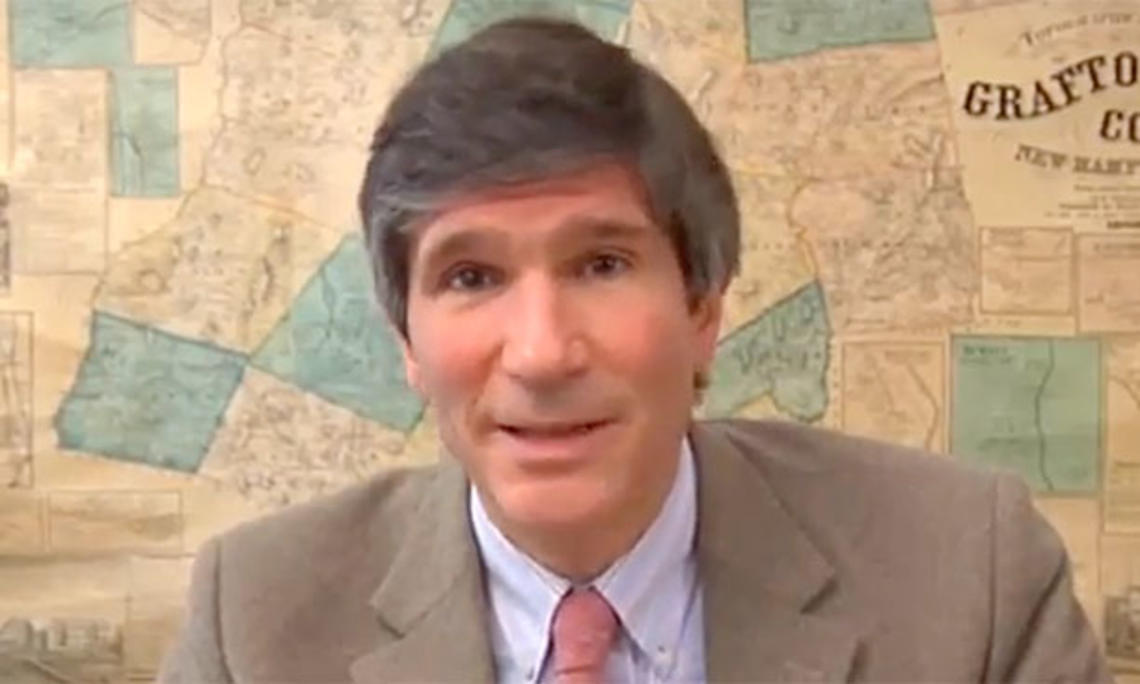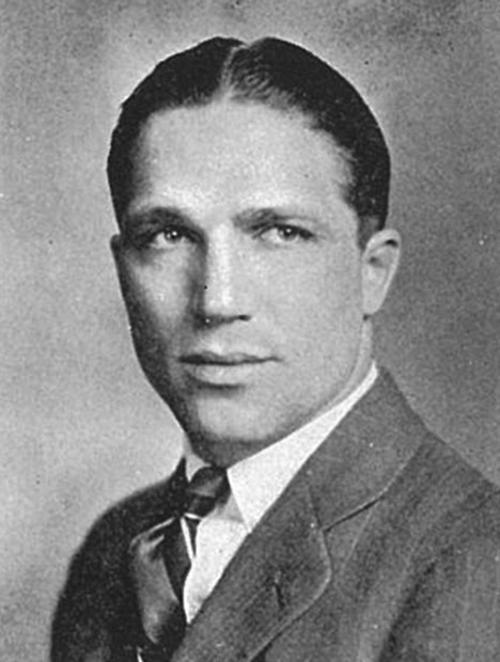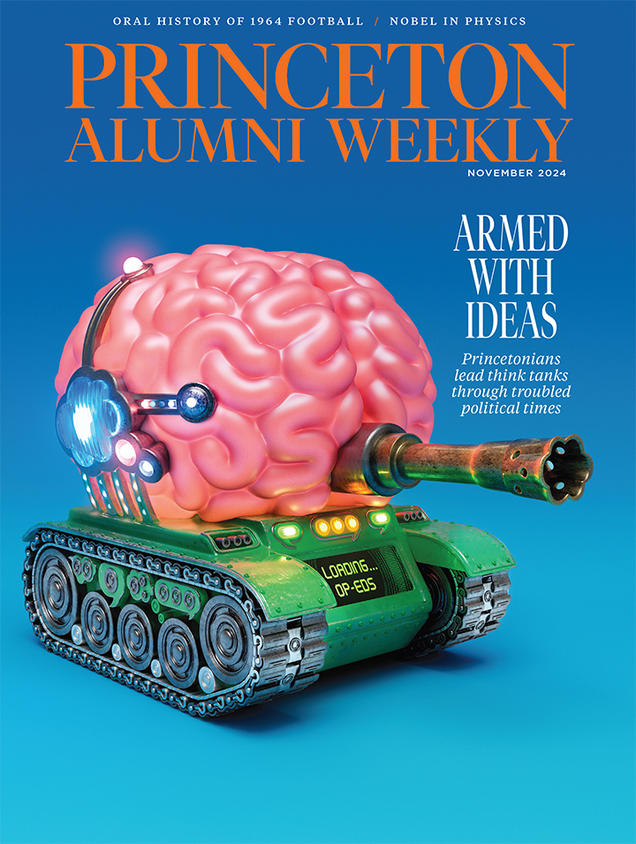
Following in the footsteps of his grandfather, Charlie Buttrey ’81 has never been one to take “no” for an answer. He ran for class president three times, finally winning in his third attempt. After all that door-to-door campaigning, he knew a little something about nearly everyone in the Class of ’81.
PAW Tracks is also available on iTunes — click here to subscribe
TRANSCRIPT
Brett Tomlinson: This episode of PAW Tracks starts way back in the fall of 1922. Charlie Buttrey ’81 has a family story that’s been handed down from generation to generation — an origin story, really. It’s about his grandfather, the first in the family line to attend Princeton.
Charlie Buttrey: My brother was Class of ’83, my Dad was Class of ’50, and this is a story about my Granddad, who was Class of ’26, who’s out in Montana. Now his dad created a very successful chain of stores in Montana. He had emigrated from Canada and somehow figured out that Havre, Mont., was exactly halfway between Minneapolis and Seattle and that would be a stopping over point for the railroads and so he started there and it was a very successful businessman.
BT: Havre was a booming town: Its population had grown to more than 5,000 by 1920, increasing five-fold in just 20 years. Still, it was a long way from the Ivy League, especially for a teenager whose father hadn’t gone to college.
CB: I don’t know how my grandfather got it in his head that he wanted to go to Princeton. So in 1922 he applies to Princeton, gets in, and he’s preparing to take this long trek — and by the way I emailed my Dad the other day to make sure the story is correct. My understanding is, interestingly enough, it was around that time that Princeton decided it needed to expand, at least geographically if not socio-economically, and so he probably wouldn’t have gotten in had Princeton not been interested in getting these, you know, farm boys from Montana.

BT: If there’s a lesson in the story of Theodore Vern Buttrey, it has something to do with not taking “no” for an answer. And that spirit was alive and well in his grandson when he came to Princeton 55 years later.
CB: My freshman year I ran for sophomore class president and almost lost to the joke candidate, and then my sophomore year I ran for junior class president and won the first round of voting but then they have the run-off — I lost again. So junior year, one more time I run again, I finish third in the primary and then win the general election! So, persistence. Then I’m senior class president and I’m thinking, “What did I do? Why did I do this? Why do I want to be senior class president?”
One of the cool things about having done it three times was I did a lot of door-to-door campaigning and meeting classmates, and when I come back to Reunions, I know all of them to some extent — I know a little something about them, I know their hometown or what club they were in or if they played in sports or they did dance or whatever. And that’s kind of neat.
And I’ve got some high-powered classmates as you may know — I mean we’ve got a Supreme Court justice and a former governor of New York and a U.S. Rep and an incredible jazz guitarist. But I like to say that the majority of “Princeton in the Nation’s Service” is not happening on Wall Street, it’s happening on Main Street; it’s not happening in the halls of Congress, it’s happening in City Hall. And for every Eliot Spitzer and Elena Kagan, there are a bunch of people you don’t know because they don’t make names for themselves, but they’re making a difference in their communities. I’ve been on the school board in Thetford, Vermont, for 20 years and I’m engaged in the community there. And there are — the former pastor my church was a Princeton guy and there’s an artist in town who went to Princeton. Princeton’s tentacles reach far and wide but they’re not all as public as the Ralph Naders and Samuel Alitos of the world.
BT: Our thanks to Charlie Buttrey for sharing his story. Brett Tomlinson produced this episode. The music is licensed from FristCom Music.
This is the final episode from the batch recorded at Reunions in 2016, but we’ll continue the PAW Tracks series in July with new interviews from Reunions 2017. As always, if you have a story to share, we’d love to hear from you. You can post a comment on any PAW Tracks page or send an email to paw@princeton.edu.
Paw in print

November 2024
Princetonians lead think tanks; the perfect football season of 1964; Nobel in physics.
